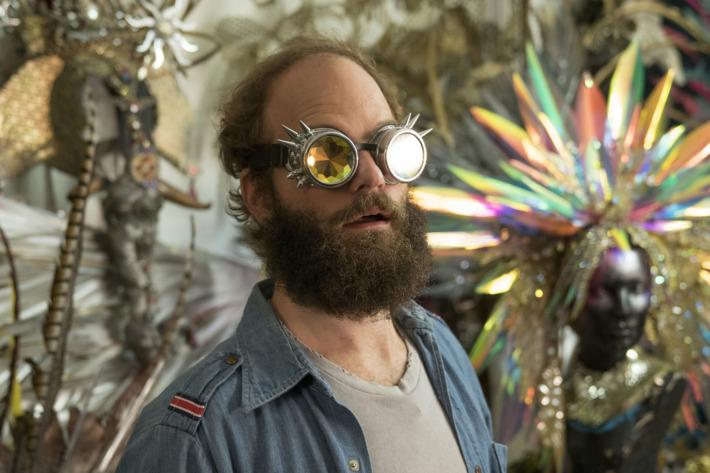In the wake of the election of Donald Trump for President of the United States, many films and television shows have taken to using his victory as a lead-off point for biting humor and sharp critiques.
One show amid the vast ocean of the cable networks has taken to offering a different perspective on society following the election. HBO’s “High Maintenance,” structured as a series of vignettes, follows a nameless pot dealer known as The Guy as he rides around New York City delivering his product to various fascinating characters around town.
Going into the second season, the writers help the show evolve in a few major ways from its debut, the most important of which is their take on some major political issues which range from the election results to the current state of the feminist movement.
Rather than take the more critical or angered approach to illustrating these topics, series co-creators/co-directors Ben Sinclair (who also stars as The Guy) and Katja Blichfield offer a more optimistic view of the country.
The first episode depicts an unnamed disaster that has the city in shock and disarray and has The Guy spiraling on the busiest day of his career. But as we follow one main character through the episode, we see another feeling aside from the dismay and fear: hope through unity.
During the day, Hispanic resident Luiz works at a kitchen while he barbacks at night, getting to spend time with his son afterward. As the episode comes to a close, he and his son ride the subway home alongside other exasperated passengers, conversing in Spanish and hitting a balloon around.
This sense of joy becomes contagious among the other passengers, who are mostly minorities, as they join in playing with the child as the balloon is hit around the subway car by the group.
After an episode initially filled with grief and terror, this closing sequence of happiness amongst those in similar positions provides audiences with the same feeling that as long as we band together, there’s still a chance at finding hope in a grim future.
The fifth episode, “Scromple,” was a key example, during which The Guy spends a weekend in a hospital after an accident, while a communications freelancer struggles at work and seeks medicinal relief.
The episode highlights two topics: religion in the LGBTQ community and amicable divorces. Stories of religious conservatives disowning those openly embracing their sexuality are heard too often, leaving them uncomfortable to continue worshipping.
While working to promote the image of an LGBTQ-friendly church, freelancer Julia watches the congregation as they listen intently to the sermon. As she watches, the audience witnesses the warm community living their lives comfortably, offering a spark of hope for those going through similar circumstances.
Audiences later learn that Julia and The Guy used to be married, but now Julia lives down the hall with her girlfriend. They also learn that despite their divorce papers being ready, neither have signed, but more interesting is the reason why they haven’t: so Julia can still benefit from The Guy’s health insurance.
Divorces in media have always been portrayed with malice and aggression, but Sinclair and Blichfield offer a more amicable view through the characters’ divorce, partly due to their own divorce.
Prior to the start of the season, Sinclair and Blichfield announced their divorce, the latter moving just down the street and also beginning a relationship with another woman.
In an interview with Entertainment Weekly, Sinclair spoke of how writing the season with Blichfield so soon after their divorce worked as an “unexpected kind of exposure therapy.”
“Watching her move on with her new girlfriend was hard for me at first, but now I’m quite happy for them in a way that makes me feel really good, because it’s like a true kind of love where you want the person that you love to just be happy, whether you’re involved or not,” Sinclair said.
This is expressed beautifully onscreen, as Julia and The Guy fall back into their old routines and chemistry, while also not driving them back together.
Even as Julia returns home to her girlfriend, Gwen, who visually disapproves of the divorce papers remaining unsigned, their commitment and The Guy’s commitment to his new girlfriend Beth remains unwavering, offering a more optimistic look at divorces.
One might think that a show focused on being more artistic while also delivering plenty of weed-related humor would play it safe in portraying the world around them, but the second season of “High Maintenance” stands out as both brilliant in its humor and unique with its hopeful outlook on an increasingly doomed society.




